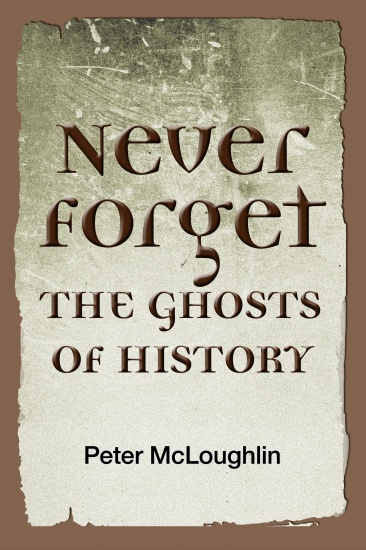
NEVER FORGET THE GHOSTS OF HISTORY
Newly published e-book about humanity’s blind drift to world war
Welcome to the website.
Allow me to outline the theme of the above book: it is about humanity’s inability to stop war. That is so because nations are not prepared to face up to the reason they fight: it is for power, manifested as interest. As a result, nations eventually get the war they are trying to avoid. And they do try to avoid war, ultimate conflicts often postponed for lengthy periods. The patterns of history show we continue to make the same mistakes, plunging ourselves into wars, regardless of how catastrophic the consequences, all due to the delusion of power. All conflicts can be broken into three general headings: the need for an expanding state to gain power; to retain it once it has been gained; to regain it when it has been lost.
Interest cuts across all apparently unifying principles: family, kin, nation, religion, ideology, politics – everything. We unite with the enemies of our principles, because that is what serves our interest. It is power, not any of the above concepts, that is the cause of war.
History has shown that you cannot satisfy the desire for power without the need for war. But nations delude themselves: convince themselves power is not the motives for their actions. Furthermore, they delude themselves that the policies they pursue – aimed at preventing defeat – are actually leading them towards it.
The arguments are laid out in the essay Patterns and Power, giving the factual background to the theme of the book, and a vital and preliminary introduction. Go to Free Copy to download the book in PDF format.
The book itself is a creative exploration of the theme, though without deviating from the factual base. It is in two parts: the first is an 18th century account of dire warnings for humanity because of its inability to live in peace, our greed for power at the root of it, and comprises a series of ancestral memories or flashbacks that lead the anonymous author of the work to his conclusions. In the second part the narrator is the discoverer of this parchment manuscript, found in family papers while researching his ancestry, and is an essay about the theme explored in the first part, the conclusions he shares from his own experiences.
I invite you – indeed implore you – to read this book, and the essay Patterns and Power and reflect upon the message and implications. Some argue that any problem faced by humanity can be solved: the problem that is denied cannot be.